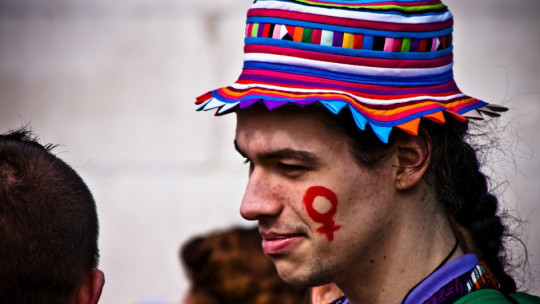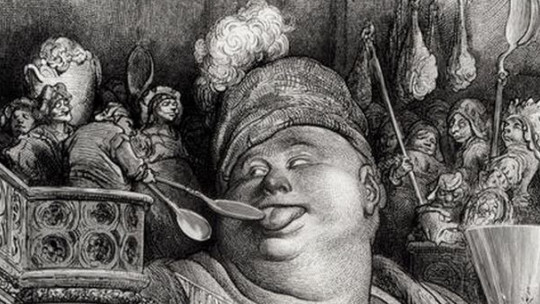
“Nothing can be said about this, it is taboo.” Surely you have heard this phrase, or something similar, many times. We are all clear that there are a series of topics that are difficult to talk about, and that rarely appear in social gatherings. But why does this phenomenon occur? Who decides when and why something is a taboo subject?
To begin with, it is necessary to clarify the meaning of this commonly used word. A taboo is, in our society, something or someone that cannot be mentioned, even in passing In the case of people, one of the usual reasons for considering someone “taboo” is the person’s social condition, which violates the “norms” of the community (an ex-convict, a murderer or, until not many years ago years, a divorced or single woman). In any case, these norms change, and what is taboo at one time may not be taboo at another, and vice versa.
But what is the original meaning of the word? Where does the fact that we consider certain things, actions or people “taboo” come from? In today’s article, we invite you to take a tour of the concept of taboo and its evolution in history.
What is a taboo?
If we take the dictionary of the Royal Spanish Academy, we find the following definition for the word taboo: “Condition of people, institutions and things that it is not lawful to censor or mention.” Well, this would fit with what we have discussed in the introduction; A taboo, for our society, is something or someone that cannot be talked about for whatever reason. However, if we continue reading, we will realize that the RAE includes a second meaning for the word taboo. It is the following: “Prohibition of eating or touching any object, imposed on its followers by some Polynesian religions.” It is in this second definition where we find the true origin of the word. Let’s see it.
James Cook and the Polynesian taboo
The first time that the word taboo (which would later derive from the Spanish taboo) is mentioned in the West is in the work A Voyage to the Pacific Oceanwhere the navigator and explorer James Cook (1728-1779) and his companion James King collected impressions of their third and last voyage. In the book, the word taboo was mentioned as the name used by Polynesian people to refer to a series of foods whose intake was strictly prohibited
That is to say, in its origin, taboo was a purely religious concept, which encompassed entities (animal or human) that were invested with sacredness and, therefore, it was not permitted to kill, hurt or eat. Many anthropologists have related the Polynesian taboo to one of the first religious structures of prehistoric people, totemism, whose main basis is, precisely, the veneration of certain entities as bearers of a supernatural force that connected with the tribe.
Manifestations of an archaic religion
Thus, taboo would originally be both the element that carries sacred energy and the act of committing some evil to it. In the first sense it would be assimilated to the totem, the protective entity of the tribe (an animal, in most cases), from which, in addition, the members of the community would descend. Therefore, Anyone who violated the sacredness of the totem fell into disgrace since he had attacked the very essence of the clan.
Sigmund Freud (1856-1939) in his work Totem and Taboo (1913), magnificently captures this idea. The totem has a special relationship with the tribe, since it is the one who protects and unifies it. The totem or taboo is, therefore, covered with a great sacred charge, powerful and unknown, so attacking him is going against the most sacred thing in the group. It’s more; According to Freud, for these primitive religions, whoever violated the taboo was also impregnated with the same force, and became, in turn, a taboo; an element charged with an energy as supernatural as it is dangerous, which awakens both admiration and fear.
From this perspective we can understand why, in some religions, the consumption of the meat of certain animals is taboo. In India, for example, cows are taboo in its double sense: first, because the cow is a sacred animal, the home of the gods; second, because killing them and eating their meat would mean attacking the sacred and impregnating the body with the same cosmic energy. In other words; The vulgar and ordinary (the common human being) would be reaching an elevated status that does not correspond to them.
A world full of taboos
Another obvious example of the sacred connection of the totem is found in our own Western culture. In the Middle Ages, the kings of France and England were considered endowed with a certain divine power, through which they could cure, through the mere laying on of hands, the so-called “king’s disease” (scrofula, specifically). So it persisted the archaic belief that the sovereign possessed a supernatural power that made him taboo and that, with a single contact, it could transmit all its sacred force to the sick person who, consequently, was cured.
In some ancient cultures, the sovereign was “untouchable,” precisely because of his intrinsic power, and anyone who dared to touch him or even look him in the eye fell into disgrace. In Egypt, on the other hand, it was highly preferable for the pharaoh to marry and have children with someone in his family, an incestuous practice that was ultimately intended to protect the “royal blood” and its magical power from any contamination.
But not only the sovereign has been considered traditionally and in all cultures as something “sacred.” Primitive societies included the priest as taboo, since, as an intermediary between the community and the gods, he was equally touched by divine power. On the other hand, certain moments in the life of the individual could also be taboo: female menstruation, childbirth, or the initiation of adolescence.
Anthropological interpretations of taboo
Anthropology has always been interested in these archaic manifestations that, in one way or another, still survive in our society. Because our own taboos (these people, things or situations that cannot be pronounced), are closely linked to the taboos of these primitive tribes. When we are morally prohibited from saying a name or talking about someone, we are unconsciously investing it with power ; Hiding its existence is a way to escape the fear or anxiety that that element impresses on us. This is, on the other hand, one of the things that interested Freud: the connection of taboo with the unconscious and psychoanalysis.
What rational explanations does anthropology provide for the existence of taboos? In the appearance of this type of prohibitions in primitive societies, scholars have wanted to see a reflection of the need for survival. Thus, the connection of the clan with the totem/taboo that protects them and, therefore, the prohibition of harming it, is an attempt to preserve the cohesion and unity of the group, the only means in which primitive man and woman They could survive in a world full of hostile elements.
Some of it has remained in our world. Because, When we are forbidden to talk about something, it is quite likely that we will not do it just to preserve our status in the group and avoid, thus, a possible rejection. This is how human communities unconsciously regulate themselves: not crossing the limits that are socially permitted guarantees integration into the group and, therefore, survival.
There are other explanations, especially about food taboos, present in all cultures. For example, the American anthropologist Marvin Harris (1927-2001) speaks of the materialist or economic-rationalist cultural principle, whereby taboo animals would be the result of a community analysis of food availability. Edmund Leach (1910-1989), on the other hand, expresses the possibility that the close relationship established between the animal and the community makes its consumption impossible.
Conclusions
In conclusion, we can say that the taboos of our society may have differed in form, but the content remains similar to that of our ancestors: something or someone that possesses a special power (in any sense), and of which, therefore, it cannot be spoken. This includes, of course, rulers and powerful people (in our time, their power does not lie in magical force, but, rather, in real power, obtained through legality or through force and abuse).
Also included in the concept of taboo are practices such as sex, whose power most cultures have distrusted (sex is one of the most powerful instincts), which entails the prohibition of words related to it or to parts of the body. that allow it to be carried out. On the other hand, In our society, elements considered “vulgar” are also taboo, such as the act of defecating, urinating, vomiting… in this case, we cannot say that it is because the taboos in question are covered with “sacrality”, but rather, quite the opposite. This is something unpleasant that we do not want to see or face.
But probably the biggest taboo in Western society is death, which, like the subjects of untouchable kings, we do not want to look in the face. Perhaps it is too disturbing, too powerful, to do so.








